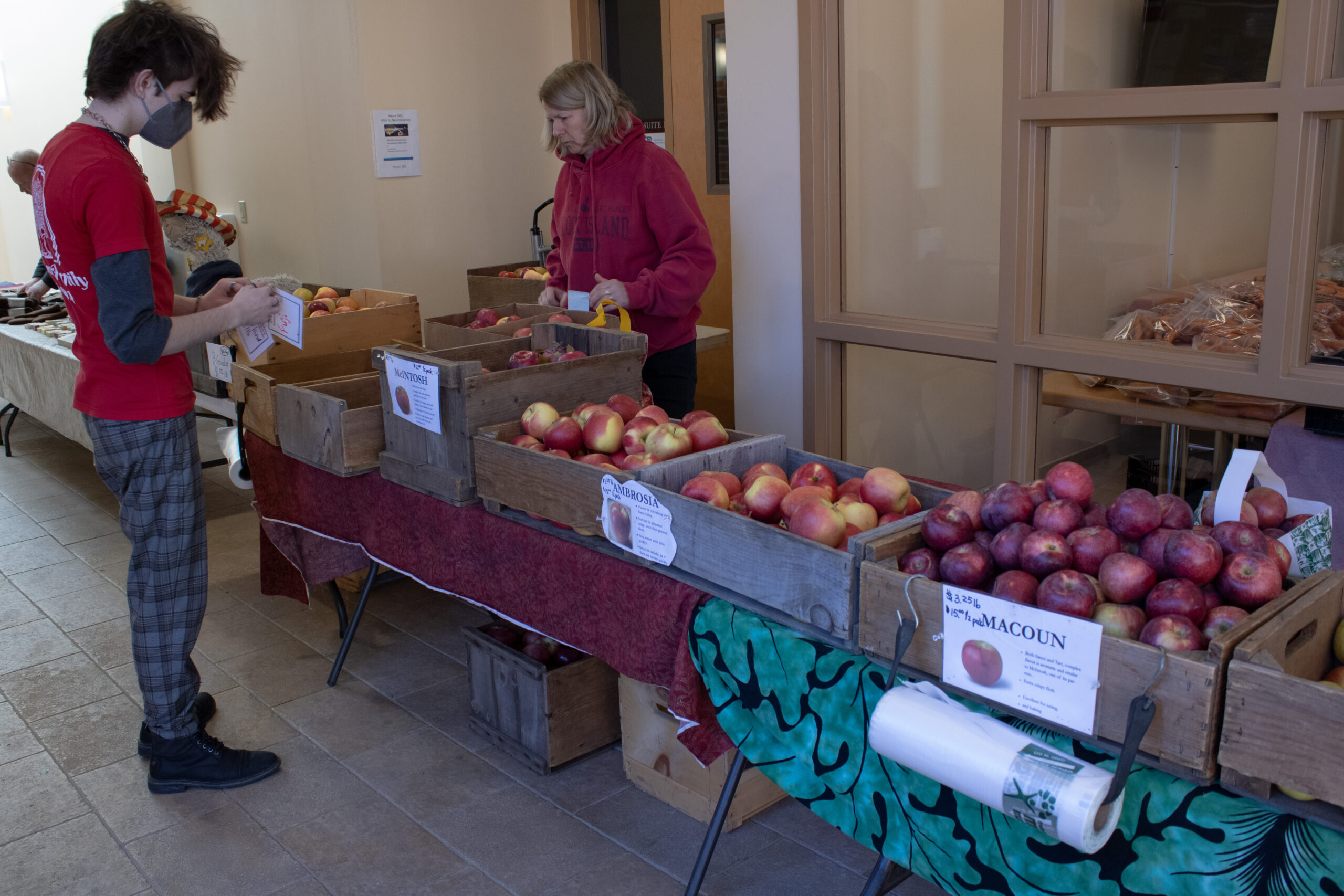Uri students can access free produce through URI Free Farmers Market. PHOTO CREDIT: Eddie Melfi | Staff Photographer
The University of Rhode Island’s farmer’s market will be hiring new student staff in the upcoming weeks to promote nutrition education for college students and give them first-hand experience to realize where their food comes from.
“‘For me personally, I think that it really exemplifies as a dietitian what I am trying to do, which is, you know, make real food accessible to people,” Kelli Kidd, a nutrition specialist at URI, said. “And I think that the venue that we put together really allowed for that.”
The free farmer’s market will be entering its third season in the fall, where students can gather fresh produce every week from on-campus agriculture. The students they are looking to hire would cover three paid positions, as well as provide 15 additional students with a four-credit course. Apart from these paid or credited positions, there are also opportunities for volunteering, where students can work either at the farmers market or at the Agronomy Farm at the bottom of campus for various three-hour shifts.
There is also an educational class involved with the farmers market, NFS 458: Nutrition Education, where students create capstone projects to bring food awareness to different audiences.
“We’ve always had students involved,” Amanda Missimer, an assistant professor in the nutrition and food sciences department, said. “From day one, it’s started off small and it’s really grown, and that has been amazing and we hope it continues to grow.”
The farmer’s market started in the fall of 2021, and the program had to work through many “extra steps” to get through the COVID-19 pandemic, according to Kidd. She also mentioned that the market was one of the first events to come out of the pandemic because of the fact they could hold the event outside with masks.
Missimer said that the market distributed 4,425 pounds of produce to over 800 students last fall.
“I think that the feedback that we’ve gotten is just a continuous theme of appreciation on different levels,” Kidd said. “That first year, we had students go through and say this is the first time they had fresh vegetables in over a year.”
This project is something she’s dreamed of creating, according to Missimer, because of the equal components of nutrition research and outreach, as well as the student learning aspect. She also explained that this experience continues to educate her and her peers about the effort it takes to grow fresh produce.
Missimer said, for example, how two hours of labor towards washing fresh carrots only equates to four dollars worth of product.
“I’m hoping that just by involving students at this stage, they’re going to be the people who are next up in line to make changes,” Missimer said.
“I just think extending our gratitude and appreciation to the University as a whole, because I think Dr. Missimer and myself have gotten such great support,” said Kidd. “I think it’s also a great example of just the collaboration that can occur with a really positive outcome.”





